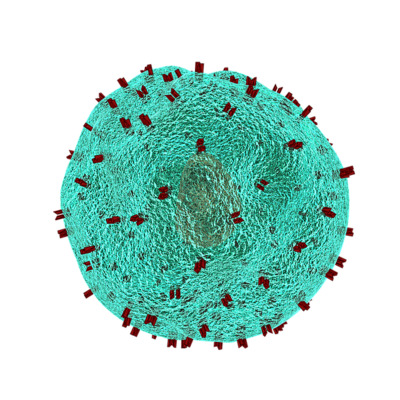
Small cell lung cancer (SCLC) is an aggressive form of lung cancer which is often not detected until after the disease starts to spread (metastasize). Although chemotherapy can be effective at first, the disease often becomes resistant to the treatment. Because of this, there is a need for new treatments. Immunotherapy, a set of treatments that utilize the body’s own immune system to fight disease, has the potential to slow the spread of SCLC.
Currently, the most investigated treatment for SCLC involves immune cells called T-cells. Unfortunately, the results have not been very good. A team of researchers from the Walter and Eliza Hall Institute has found that a different kind of immune cell, called a natural killer (NK) cell, is able to slow the growth and spread of SCLC in a mouse model of the disease.
The researchers used special mice that are missing either T or NK cells. They found that the tumors spread more when there was a lack of NK cells. The work shows that NK cells are better at limiting the spread of SCLS than T-cells are, at least in this system. Researchers also found that NK cells were more effective when they were activated by an immune boosting protein (cytokine IL-15).
The results highlight the potential of NK cells as a new and effective treatment for SCLC. NK cells could be used in combination with chemotherapy or other immunotherapies to improve patient outcomes even more.
https://pixabay.com/users/allinonemovie-201131/
